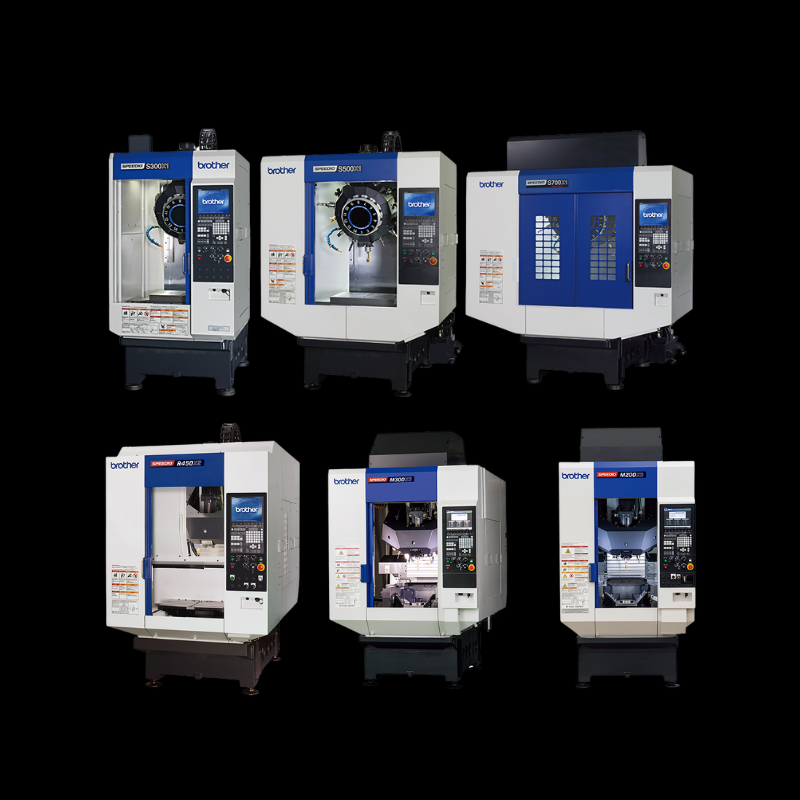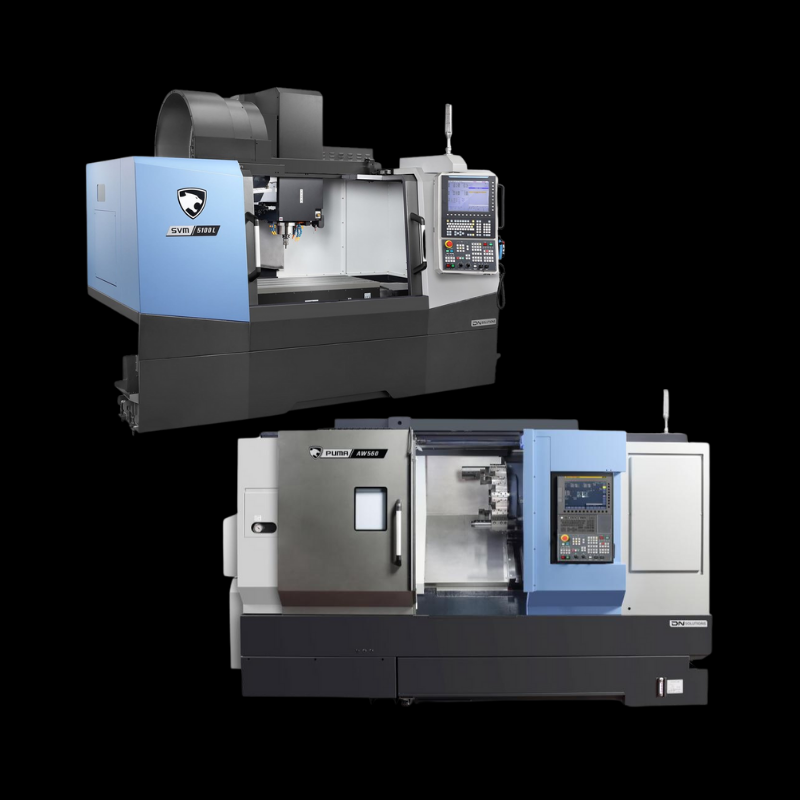The Tornos Multi-Swiss CNC machine is known for its high efficiency and advanced technology, offering features such as hydrostatic bearings, synchronized spindles, and an advanced oil flow system. These attributes enable exceptional precision and productivity, making it ideal for high-volume production of complex parts.
Explore how these innovative features translate into real-world benefits and why the Multi-Swiss CNC machine could be a transformative addition to your manufacturing setup.
Advanced Features of the Multi-Swiss CNC Machine
The Multi-Swiss CNC machine sets itself apart with several advanced features designed to enhance productivity and precision. Its hydrostatic spindle bearings provide exceptional damping during machining operations, extending tool life by over 30% in certain applications. This increased damping capability not only improves the finish of machined parts but also allows for the machining of hard materials with greater confidence.
Equipped with synchronized spindles powered by high-torque motors, the Multi-Swiss CNC machine achieves rapid barrel indexing times under 0.4 seconds, minimizing cycle times and maximizing output. This synchronization ensures precise angular positioning between spindles, crucial for the high-quality production of intricate parts.
Another standout feature is the machine's sophisticated oil flow system, which includes a large-capacity tank and multiple filtration stages. This system maintains the cleanliness and temperature of the oil, which is vital for the consistent operation of hydrostatic bearings and for maintaining the machine’s overall health.
When considering the integration of a Multi-Swiss CNC machine into your production line, focus on assessing your current and future part complexity and production volume needs. Evaluate the setup flexibility, ease of programming through its user-friendly interface, and the potential for reducing cycle times which are essential for high productivity.
Technical Specifications and Models of the Multi-Swiss Machine
The Multi-Swiss machine by Tornos stands out not only for its innovative features but also for the variety of models it offers, each tailored to different production requirements. Below, we delve into the main technical specifications and the differences between these models to help you select the most suitable machine for your manufacturing needs.
MultiSwiss 6x16:
- Bar Capacity: 4-16 mm
- Maximum Part Length: 40 mm
- Barrel Indexing Time: 0.40 seconds
- Maximum Spindle Speed: 8000 rpm
- Spindle Output: 5.60 kW
- Number of Linear Axes: 14
- Cooling: Oil
- Oil Tank Capacity: 900 liters
The MultiSwiss 6x16 is ideal for high-precision machining of small components. Its compact design and high-speed capabilities make it perfect for industries requiring detailed, intricate parts, such as medical devices and electronics.
MultiSwiss 8x26:
- Bar Capacity: 8-26 mm
- Maximum Part Length: 65 mm
- Barrel Indexing Time: 0.48 seconds
- Maximum Spindle Speed: 8000 rpm
- Spindle Output: 11.00 kW
- Number of Linear Axes: 24
- Cooling: Oil
- Oil Tank Capacity: 2000 liters
Designed for slightly larger parts, the MultiSwiss 8x26 provides more stations and higher power output, suitable for complex operations in automotive and aerospace manufacturing where both precision and robustness are required.
MultiSwiss 6x32:
- Bar Capacity: 8-32 mm
- Maximum Part Length: 65 mm
- Barrel Indexing Time: 0.50 seconds
- Maximum Spindle Speed: 6000 rpm
- Spindle Output: 11.00 kW
- Number of Linear Axes: 17
- Cooling: Oil
- Oil Tank Capacity: 2000 liters
The MultiSwiss 6x32 caters to industries that work with medium to large-diameter parts but still require the high precision and efficiency characteristic of Swiss-type machines. Its capabilities make it a strong candidate for producing automotive components and complex mechanical assemblies.
These models differ primarily in their bar capacity, spindle speed, and number of linear axes, allowing them to cater to different sizes and complexities of parts. All models share core features such as high-speed barrel indexing, advanced oil flow systems, and ergonomic design, making them versatile for various high-precision manufacturing tasks.
The choice between these models should be guided by the specific part dimensions, material requirements, and production volumes your operations demand. Each model offers a unique combination of speed, precision, and capacity to efficiently produce high-quality parts across a range of industries.
Drawbacks and Limitations of the Multi-Swiss Machine
While the Multi-Swiss machine boasts innovative features that significantly boost productivity and precision, it also comes with several drawbacks that may affect its suitability for certain manufacturing environments. Here's an in-depth look at the limitations of this advanced machine:
- High Initial Cost: The Multi-Swiss machine, equipped with cutting-edge technology, is a substantial investment. Its high initial cost can be a significant barrier for small to medium-sized enterprises or startups with limited budgets, potentially making it less accessible for those looking to scale operations without massive upfront capital.
- Complexity of Operation: Despite its advancements in user-friendly programming and operational control, the Multi-Swiss machine requires a steep learning curve due to its complex features and functionalities. Operators must be well-trained and experienced in CNC machining, which can add to training costs and time before full operational efficiency is achieved.
- Intensive Maintenance Needs: The sophistication and complexity of the Multi-Swiss machine also mean that it requires meticulous and frequent maintenance to perform optimally. Regular maintenance is crucial to prevent breakdowns and extend the machine's life, but it also incurs additional costs and potential downtime, which can impact production schedules.
- Space Requirements: The physical footprint of the Multi-Swiss machine, along with its necessary auxiliary equipment such as bar feeders and chip management systems, requires more floor space than traditional CNC machines. This can be a disadvantage for facilities with limited space, necessitating reorganization or expansion to accommodate the machine.
- Suboptimal for Low Volume Production: While the Multi-Swiss machine excels in high-volume production settings due to its efficiency and speed, it may not be as cost-effective for operations that focus on low-volume, bespoke, or prototype productions. The setup and changeover times can diminish the advantages it offers, leading to inefficiencies in a low-run production environment.
- Higher Energy Consumption: Operating multiple spindles and maintaining precise temperature control systems results in higher energy consumption compared to less complex machines. For businesses focused on sustainability and reducing their energy use, the Multi-Swiss machine might pose a challenge in aligning with these environmental goals.
Understanding these drawbacks is crucial for manufacturers considering the Multi-Swiss machine. It’s important to evaluate whether the benefits provided by the machine align with the specific needs and constraints of their manufacturing operations to make an informed investment decision.
Core Advantages of the Multi-Swiss Machine Over Other Swiss Machines
The Multi-Swiss machine from Tornos represents a significant leap forward in the realm of Swiss-type machines, offering several distinct advantages over traditional Swiss machines. These benefits stem from its innovative design and advanced technological features, which cater to high-efficiency and precision manufacturing needs.
- Increased Spindle Utilization: Unlike traditional Swiss machines, the Multi-Swiss features multiple spindles (up to 8) that operate independently, allowing simultaneous machining processes. This increases throughput significantly, as multiple operations can be performed concurrently, reducing cycle times drastically.
- Advanced Thermal Management: The Multi-Swiss machine incorporates a sophisticated thermal management system that maintains a consistent temperature across all machine components. This stability is crucial for achieving high precision in parts, especially when dealing with materials that are sensitive to thermal variation. Traditional Swiss machines may not offer this level of temperature control, which can lead to dimensional inaccuracies in finished parts.
- Superior Ergonomics and Accessibility: Tornos has designed the Multi-Swiss with the operator's comfort and efficiency in mind. The machine provides frontal access, which is not typical in conventional Swiss machines. This design feature not only enhances safety but also makes it easier for operators to make adjustments and change setups, thereby minimizing downtime and fatigue.
- Ultra-Fast Barrel Indexing: The use of torque motor technology for barrel indexing in the Multi-Swiss allows for extremely fast and precise spindle positioning. This feature outperforms traditional indexing mechanisms found in other Swiss machines, where the locking and unlocking of the barrel can consume valuable time.
- Integrated Cutting Oil Management: The cutting oil system in the Multi-Swiss is a comprehensive solution that includes not only filtration but also temperature control. This integrated approach ensures optimal lubrication and cooling, reducing wear on tools and improving part finish, which is a significant upgrade over the simpler systems typically used in other Swiss machines.
- Modular Tooling and Flexibility: The tooling system in the Multi-Swiss is highly modular and can be quickly adapted for different tasks, thanks to its pre-adjustable tool holders with integrated cooling. This versatility is a marked improvement over the more rigid tool setups commonly seen in traditional Swiss machines, enabling faster setup times and easier transitions between different production runs.
- Exceptional Precision and Finish: The combination of hydrostatic bearings, precision thermal regulation, and synchronized spindles contributes to the exceptional machining quality of the Multi-Swiss. These features allow for tighter tolerances and superior surface finishes compared to other Swiss machines, which may rely on less advanced bearing and spindle technologies.
These core advantages make the Multi-Swiss machine not only a leader in its class but also a transformative asset in high-volume, precision manufacturing settings where reducing cycle times, enhancing part quality, and improving operational efficiencies are important.
Enhancing Productivity with the Multi-Swiss Tornos
The Multi-Swiss Tornos CNC machine is designed with several innovative features that significantly enhance productivity in precision manufacturing environments. Understanding how to leverage these features can transform your production efficiency and output quality.
- Optimal Barrel Indexing Speeds: The Multi-Swiss Tornos utilizes torque motor technology to achieve ultra-fast barrel indexing times. This rapid indexing allows for shorter cycle times, enabling more parts to be produced per hour. Ensuring that the machine settings are optimized for the specific parts being manufactured can further enhance these efficiencies.
- Independent Spindle Control: Each spindle can be controlled independently for speed and positioning, which is crucial when producing complex parts with varying requirements. This flexibility allows for fine-tuning of each operation, reducing the need for subsequent adjustments and minimizing downtime between production runs.
- Advanced Cooling Systems: Effective management of tool temperature is vital for maintaining high precision in machining. The Multi-Swiss features integrated cooling systems within the slides, which not only prevent overheating but also reduce the accumulation of swarf, thereby keeping the workspace clean and maintaining the integrity of the machining process.
- Integrated Ergonomics and Accessibility: The design of the Multi-Swiss Tornos emphasizes ease of use and operator comfort. Features like frontal access to the machine and ergonomically designed controls reduce operator fatigue and enhance safety, allowing for longer operational periods and quicker setup changes without compromising on quality.
- Use of Hydrostatic Bearings: Employing hydrostatic bearings increases the damping during machining, which is particularly beneficial when working with hard materials or intricate designs. This results in better finishes and higher-quality parts while also extending the life of the tools used.
- Modular Tooling System: The pre-adjustable quick-change tool holder system of the Multi-Swiss is designed to maximize tool versatility and ease of setup. By utilizing this system, manufacturers can reduce tool changeover times, allowing for a broader range of operations to be performed swiftly and with fewer interruptions.
- Precision Thermal Regulation: Keeping the machine at a consistent temperature is crucial for achieving high precision. The Multi-Swiss's comprehensive thermal management system ensures that temperature fluctuations do not affect the machining quality, even during extended production runs.
By integrating these strategies into your CNC operations, the Multi-Swiss Tornos machine can dramatically boost productivity, ensuring that your manufacturing processes are not only faster but also more cost-effective and of higher quality.




